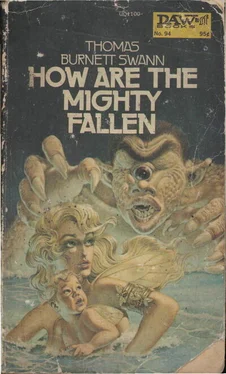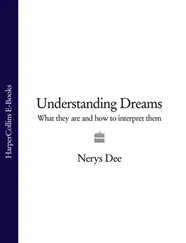Thomas Swann - How are the Mighty fallen
Здесь есть возможность читать онлайн «Thomas Swann - How are the Mighty fallen» весь текст электронной книги совершенно бесплатно (целиком полную версию без сокращений). В некоторых случаях можно слушать аудио, скачать через торрент в формате fb2 и присутствует краткое содержание. Жанр: Фэнтези, на английском языке. Описание произведения, (предисловие) а так же отзывы посетителей доступны на портале библиотеки ЛибКат.
- Название:How are the Mighty fallen
- Автор:
- Жанр:
- Год:неизвестен
- ISBN:нет данных
- Рейтинг книги:4 / 5. Голосов: 1
-
Избранное:Добавить в избранное
- Отзывы:
-
Ваша оценка:
- 80
- 1
- 2
- 3
- 4
- 5
How are the Mighty fallen: краткое содержание, описание и аннотация
Предлагаем к чтению аннотацию, описание, краткое содержание или предисловие (зависит от того, что написал сам автор книги «How are the Mighty fallen»). Если вы не нашли необходимую информацию о книге — напишите в комментариях, мы постараемся отыскать её.
How are the Mighty fallen — читать онлайн бесплатно полную книгу (весь текст) целиком
Ниже представлен текст книги, разбитый по страницам. Система сохранения места последней прочитанной страницы, позволяет с удобством читать онлайн бесплатно книгу «How are the Mighty fallen», без необходимости каждый раз заново искать на чём Вы остановились. Поставьте закладку, и сможете в любой момент перейти на страницу, на которой закончили чтение.
Интервал:
Закладка:
“I didn’t pause to bathe when I heard you were in the camp,” he continued. He was notorious for his baths. The men jested that he could not grow a beard because of the frequency with which he washed his face. Yet no one except his mother had ever seen him without his clothes, not even in the streams where the men stripped and swam and sang after a long march. It was said by some that he bore a terrible disfigurement across his back; by others that the mark was strange and beautiful, a link to his mother and her people on Crete or, in the language of Israel, Caphtor.
“And you were hungry and knew a feast awaited you.” She smiled.“A good dinner is stiff competition even for a mother.”
“I could eat a fatted calf, but it would taste better if I shared it with my mother.” There were few secrets, few evasions between them, except when he fled into the tabernacle of his spirit, where even his mother could never follow him. (It had been thus for almost half of his life. Once she had found him in tears. “Why do you weep, my son?” “Because I am like the sea.” “How do you mean?” “It tries to embrace the land, but the land hurls it back in broken waves.” He had fled from the room and left Ahinoam to interpret his answer.)
“The sun is down,” said Saul. “It is time to break our fast.”
Rizpah stirred from her amorous languor. Silently she moved between the guests and, with the help of flintstones, lit the wicks which floated in terra-cotta cruses of olive oil. The Philistines preferred candles, and those who had visited Askelon or Gaza spoke of palaces and temples where great candelabra hung from the ceilings like constellations and lit the painted images of Ashtoreth until her eyes seemed to glow like those of a cheetah. But Saul disdained luxury. He still knew the seasons better than the manners and appurtenances of a royal court.
The flap of the tent rustled like the wings of an angry raven. The lamps flickered with a sudden guest of breeze and the aged priest Elim paused in the opening. For sheer perversity, he surpassed the petulant and senile Samuel. He loved to predict a plague or prophesy a drought.
“There will be no feast,” he announced in tones intended to be funereal but, alas, as high and piping as a flute. “Someone has broken the king’s commandment Someone has drunk or eaten before sunset”
Elim refused to move; obviously he hoped to arouse consternation. Unfortunately he was a fat little man, bald and big-eyed, who looked more like a Canaanite fertility god than a priest of Yahweh.
Saul glared at him with his kingliest glare. “And may I ask how you. came to learn so dire a matter? Surely not from Samuel. He is bedridden with the ague in the Sanctuary at Nob.” Saul was known to dislike the prophet Samuel, who had anointed him king over Israel only to demean and heckle him throughout his reign, resenting, no doubt that his own sons, who were liars and lechers, did hot deserve the throne. When to make war, when to make peace, when to fast, when to avoid women: Samuel’s list of prohibitions was longer than that in the holy book of Leviticus.
“Why, from the oracle, how else?” Elim said. The oracle at Michmash was an ancient terebinth tree whose branches were hung with silver bells which, before the coming of Yahweh, had been shaped like fishtailed gods or goddesses with swelling breasts. Now they were merely bells; nevertheless, they managed to speak to the satisfaction of the priests.
“We shall go to this tree and hear for ourselves,” Saul announced. He was not at ease with his god and he could not risk offending a priest even a priest like Elim.
They followed Saul from the tent Ahinoam leaning on Jonathan less for support than affection, since the mere sight of him, neither wounded nor melancholy, had rested her from her ride. He is pleased to see me, she thought, he is pleased at Israel’s victory. But the joy which radiates from his body — I feel it like the warmth from a brazier-why, one would think that an angel had talked to him!
The oracular tree reminded Ahinoam of Samuel-old, brittle, skeletal, and lonely in its decay. It had died in a drought when the Philistines stole the Ark of the Tabernacle from Sblloh, but bells still hung on its ancient branches, metal fruit on moldering limbs. Silent at first, they began to speak with the rise of the evening breeze. Even Ahinoam could hear the unwonted harshness in their tone. Usually they sang like crickets, but now they croaked like frogs.
Saul looked to Elim. “What do they say?” Deeply religious, he had not lost faith in Yahweh; rather, he feared that Yahweh had lost faith in him.
“Let the king discover and punish the transgressor.”
Saul sighed and the years seemed to rest on his shoulders like a mantle of snow. Was this the ardent man she had loved at the well in Endor, he who had left his fields to raise the siege of Jabesh-Gilead and unite a divided country? It sometimes seemed to her that except for leading an army, which, with the help of Jonathan and an able cousin named Abner, he did with a skill amounting to genius, he hardly possessed the energy to sigh. It was her one satisfaction that he could no longer be an impassioned lover to Rizpah.
“Whoever has broken my commandment must die,” Saul said, like a priest reciting a ritual. “Is it a servant among the baggage train?”
Again, the croak of the bells, a medley of fat warty toads.
“A warrior?”
A listening silence fell upon the camp, and not only around the tree. Ahinoam saw that the warriors camped among the neighboring trees were watching the priest as raptly as the king and his retinue. They were starved in the midst of plenty. Their fires blazed readily to receive the calf or the lamb.
Their wineskins bulged with the juice of the grape and the pomegranate.
“One of my warriors?”
The tree resounded like the trumpet blast of an attacking army.
“But I have three thousand men! How shall I know the transgressor?”
“Let the king look to himself and his own family.” Elim could not conceal his glee. He was known to resent Jonathan, Abner, Michal-all of those close to the king except Rizpah, with whom he liked to converse about the price of grain or a sickness among the herds.
A soldier and in the king’s family… Only Jonathan of Saul’s four sons had fought in the battle of Michmash. The other three sons, mere boys and much too young to fight, had remained in Gibeah.
“Jonathan, my son-” It was more a protestation than an accusation. Then, to Elim with growing wrath: “Do you dare to accuse my own firstborn?”
Saul’s rages, which often preceded his madness, were the terror of Israel. He was known to hurl spears or demolish a tent or a room. Elim’s confidence forsook him. He shrank like a threatened spider.
“The tree, not I, accuses.”
“Perhaps I am guilty,” said Jonathan. “I was not in the camp when my father delivered his edict. I have eaten no meat and drunk no liquid except water. But in the forest beside the desert-”
“What has my son eaten besides meat?”
“In the forest I came on a nest of bees. I ate of the honeycomb.”
Everyone knew that Jonathan was loved by the bees. Often they led him to their hives and spun joyously when he partook of their wealth. It was whispered that Ahinoam had brought him, as a small child, from the island of Crete, where the bees built nests in the eaves of the ruined palaces, and the old demigods, the men with the legs of sheep, the women who lived in trees, danced by the light of the harvest moon and coupled to the piping of flutes and the clashing of cymbals. (It was whispered that he was not Saul’s son.)
Saul’s voice went dead, like a discarded lyre. “It was enough. Jonathan must die.”
Читать дальшеИнтервал:
Закладка:
Похожие книги на «How are the Mighty fallen»
Представляем Вашему вниманию похожие книги на «How are the Mighty fallen» списком для выбора. Мы отобрали схожую по названию и смыслу литературу в надежде предоставить читателям больше вариантов отыскать новые, интересные, ещё непрочитанные произведения.
Обсуждение, отзывы о книге «How are the Mighty fallen» и просто собственные мнения читателей. Оставьте ваши комментарии, напишите, что Вы думаете о произведении, его смысле или главных героях. Укажите что конкретно понравилось, а что нет, и почему Вы так считаете.












